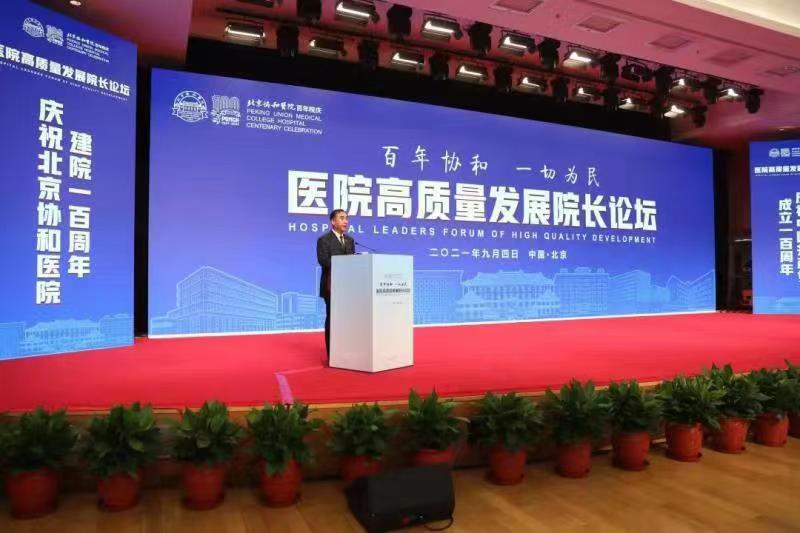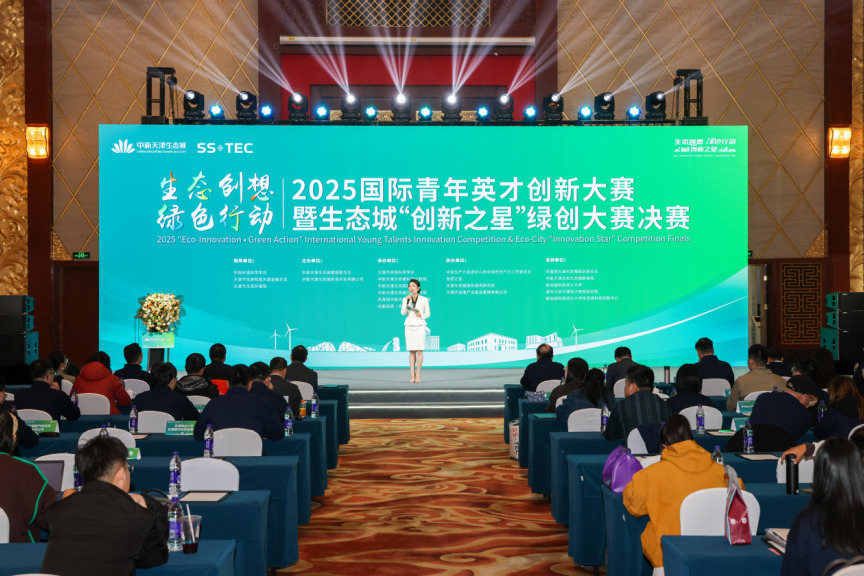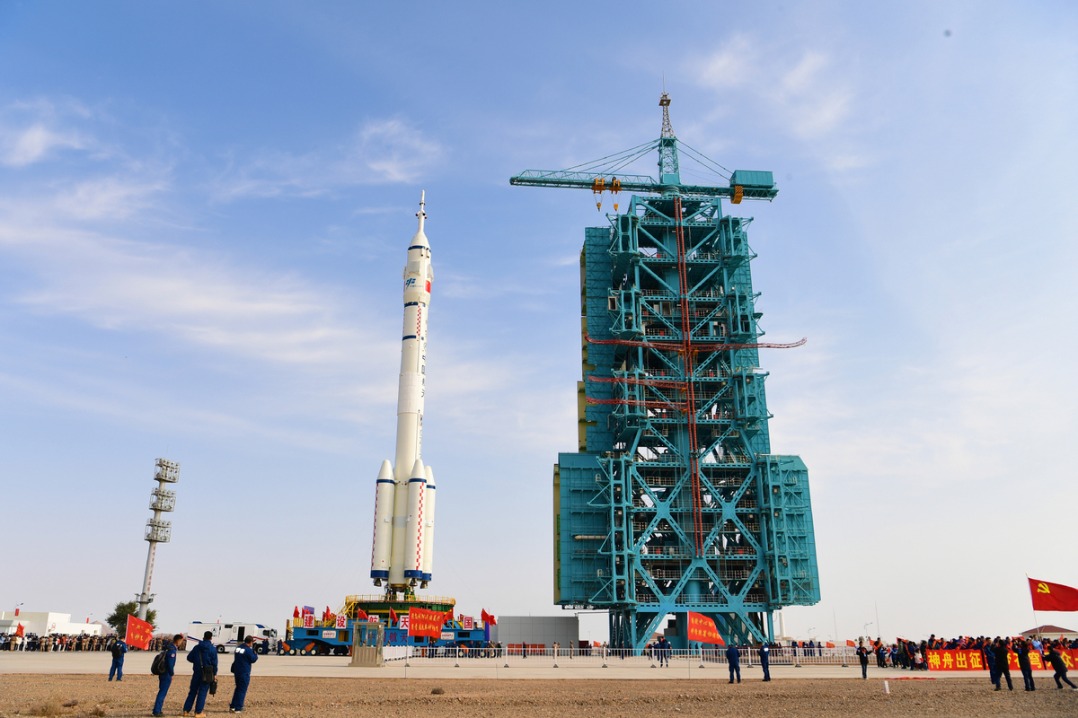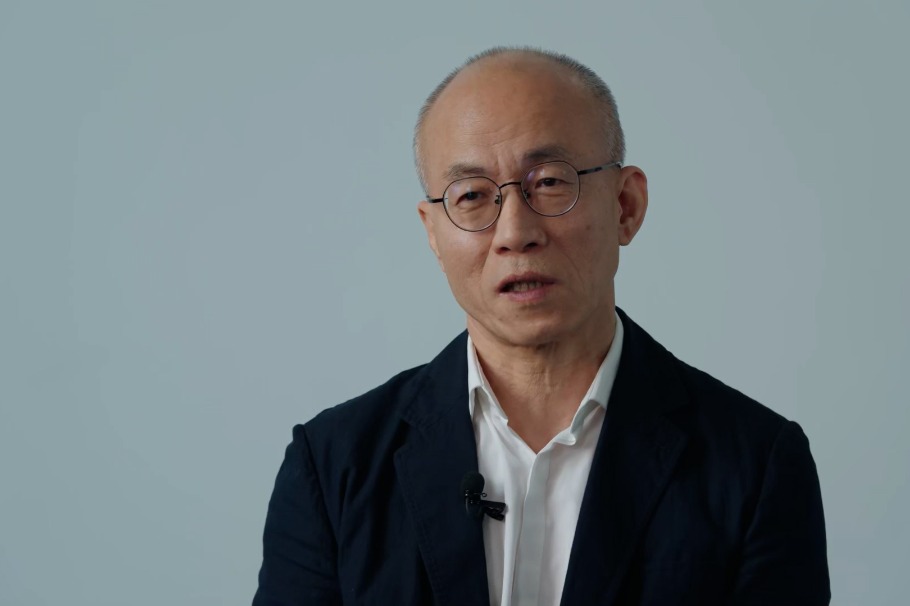Medical leaders share thoughts on high quality development


Directors of China's top hospitals gave suggestions on the construction of high-quality hospitals at a summit on Saturday, as they celebrated the 100th anniversary of the establishment of Peking Union Medical College Hospital.
As the experimental unit of the nation’s modern hospital management system and high-quality development plan, the hospital aims to become a world-class hospital.
Qualities it developed over the past century include a spirit of service to the nation and Chinese people, respect for scientific knowledge and regard for the motives of personnel and carrying forward a culture of excellence, all of which provide an example for their medical peers, said Li Bin, deputy director of China’s National Health Commission.
Li also noted construction requirements, which involve new systems, more sophisticated service and management abilities, promoting co-development of medical insurance and the drug industry and strengthening Party leadership over public hospitals.
In June, the General Office of the State Council published an announcement regarding the high-quality development of public hospitals, with detailed guidance for medical reform.
"The principal position of public hospitals has to be strengthened," said Xu Shuqiang, director of the institutional reform department of the commission. "Public hospitals in China will make efforts to refine their management through talent-oriented resource allocation to improve operating efficiency."
Hospital leaders shared their inspirations about the management process, with many highlighting the significance of digitalization through high-tech skills.
"We commit to providing convenience for patients with digital devices, so that they can finish their entire treatment procedure with a smart phone," said Ning Guang from Shanghai Ruijin Hospital.
High-tech companies have also played an indispensable role in medical services. According to Hu Houkun, rotating chairman of Huawei, the volume of patients using internet healthcare services has doubled during the COVID-19 pandemic.
Hu explained the advantages of technology in balancing medical resources, which could contribute to promoting convenient and specific treatment processes, as well as increasing hospital management efficiency.
Jiao Yahui, director of the National Health Commission's Bureau of Medical Administration, summarized the objectives for the high-quality improvement of public hospitals, including gradually perfecting system construction, improving overall efficiency and quality and motivating medical personnel.
Feng Xiaojie contributed to this story.
- China's progress, new opportunities for the world
- Zhengzhou inks friendly cooperation with 4 intl cities
- Five-Year Review! Explore foreigners' perceptions of China's economy
- High school entrance exam will remain, education authorities clarify
- Education ministry unveils measures to improve students' mental health
- China ratifies Commemoration Day of Taiwan's Restoration




































